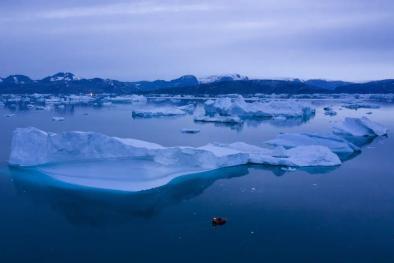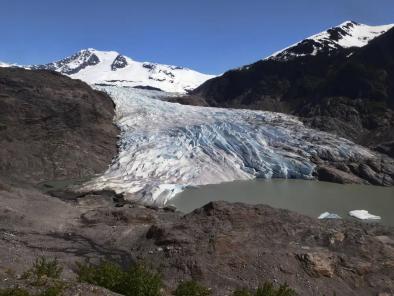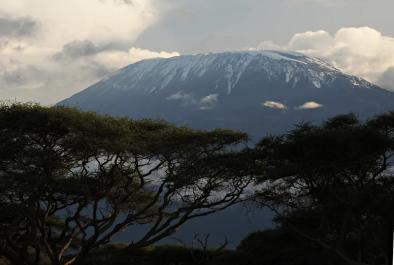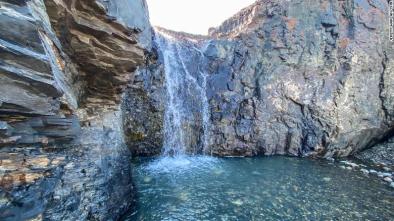Science Source
Massive destabilization of an Arctic ice cap
- States that ice caps that are mostly frozen at the bedrock-ice interface are thought to be stable and respond slowly to changes in climate
- Uses remote sensing to measure velocity and thickness changes that occur when the margin of the largely cold-based Vavilov Ice Cap in the Russian High Arctic advances over weak marine sediments
- Shows that cold-based to polythermal glacier systems with no previous history of surging may evolve with unexpected and unprecedented speed when their basal boundary conditions change, resulting in very large dynamic ice mass losses (an increase in annual mass loss by a factor of ∼100) over a few years
- Questions the future long-term stability of cold and polythermal polar ice caps, many of which terminate in marine waters as the climate becomes warmer and wetter in the polar regions
Related Content
Headline

Jan 25, 2023 | Climate Nexus Hot News
Greenland Warmest Since Before Norman Invasion Of England
Headline

Jan 6, 2023 | Climate Nexus Hot News
Urgent Climate Action Can Limit, But Not Prevent, Glacier Loss
Headline

Nov 8, 2022 | Climate Nexus Hot News
UNESCO Glaciers Doomed And Threatened By Climate Change
Headline

Jul 21, 2022 | CNN
A 'Not Normal' Amount Of Greenland's Ice Melted Last Weekend


